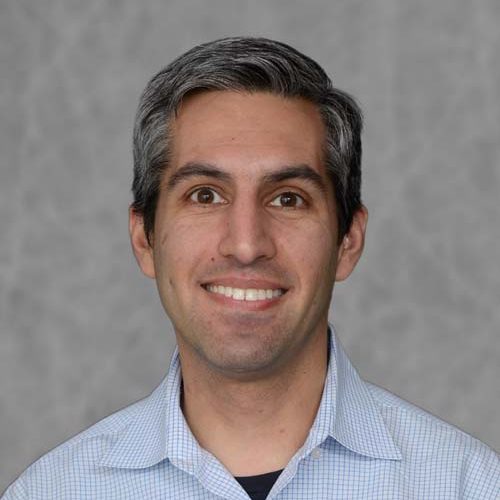NC State Teaching Assistant Professor Carlos Goller loves teaching his students in a way that is collaborative, innovative and involved. In his opinion, one of the best parts of his job is getting to teach labs and do experiments with his students. “There will be twelve of us doing an experiment together, and I don’t always have all the answers,” says Goller. “But we will do some of the techniques, and then we all learn together as a group.”
As well as teaching students, Goller has a plethora of scientific interests and is currently invested in researching a microbe called Delftia acidovorans. “This microbe is really cool because it takes liquid gold and precipitates it into little gold nanoparticles,” Goller excitedly says. “It basically poops gold.”

To get students involved in his research, Goller helped organize a Wolfpack Citizen Science Challenge, working with the NC State Libraries to give undergraduate students swabs and asking them to help take samples to find where Delftia lives. Interestingly, they discovered that Delftia is often found in some curious places. Delftia has been found near water fountains and college dorms, “not causing harm, but just sticking around,” Goller says. Goller hopes to discover more about Delftia’s ability to precipitate gold; specifically what conditions cause it to do so, what other features it has, and how it uses them.
Beyond involving students in sampling research for the “gold pooping” microbe, Delftia, Goller is all about bringing students into scientific research and getting them excited about it. By helping his students learn how to process samples and involving them in analyzing data and spreadsheets, Goller is training his students to think critically and to be analytical.
As a teacher, Goller believes that is important to help his students look at both the big picture and the small details of their scientific research and their lab work. To do this, he often connects the research of both his graduate and undergraduate students. “The graduate students here will create an activity as part of their project, and then the undergraduate students will have to take that activity and see how it works,” explains Goller. “And then they both learn.”
Being a faculty member at NC State has been an exceedingly positive experience for Goller. He emphasized how productive and useful the Public Science Cluster, the NC State Libraries, Rob Dunn’s Lab, the Biotechnology Program and his fellow teaching community has had on his research and teaching interests. “The teaching community here is really interested in making accessible evidence-based teaching resources,” says Goller. “Public science forces me to think, how can we make our research broadly available, and how can we incorporate citizen science into this?”
Looking ahead, Goller hopes to continue to connect science into a public resource that others can use. “Hopefully, I can get my act together and make a database or webpage so people can see things like where delftia is found and can look at and analyze the data,” Goller says with a laugh.